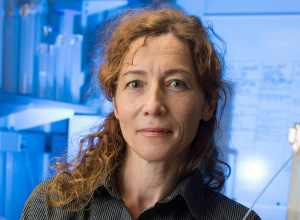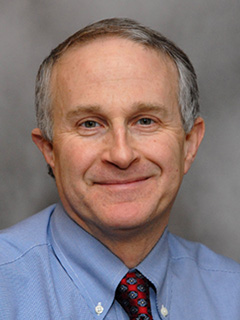August 1, 2020:
This month, the Big Ten Cancer Research Consortium highlights Masonic Cancer Center, University of Minnesota, as our featured member. Veronika Bachanova, MD, PhD, shares her research interests, and Jeffrey Miller, MD, discusses his research in natural killer (NK) cells.
Investigator Spotlight
Veronika Bachanova, MD, PhD, professor of medicine, Masonic Cancer Center, University of Minnesota Medical School
Educational background
- Medical School: Komenius University, Bratislava, Slovakia
- Residency: Henry Ford Hospital, Detroit, Mich.
- Fellowship: University of Minnesota, Minneapolis, Minn.
Research interests
I am a professor of medicine at the University of Minnesota, section head of hematologic malignancy, and lead for CAR-T Cell Therapy in the Bone Marrow Transplant Program at University of Minnesota. My research and clinical work is focused on immunotherapies and stem cell transplantation for hematologic malignancies, particularly lymphoma. I founded and currently chair the Hematologic Malignancy Tissue Bank and have designed and conducted dozens of investigator-initiated clinical trials for lymphoma and leukemia.
In my clinical practice, I witness every day the life-saving potential of cellular therapy and transplantation and the capacity of the immune system to eliminate cancer. As a result, my clinical research is focused on the design and development of new approaches that utilize the immune system to attack cancer cells. Currently, I direct the team that is focused on the emerging field of CAR T-cell therapies and Natural Killer (NK) cellular therapies for the treatment of lymphoma and myeloma.
Most recently, my partnership with industry and basic researchers led to a first-in-human clinical trial using nicotinamide to expand and epigenetically manipulate blood NK cells for cancer therapy. I designed and launched a phase I clinical trial for lymphoma and myeloma and so far enrolled over 30 patients. We interrogate in real-time blood and tissue samples in correlative analyses and adapt our clinical protocol to enhance NK cells’ persistence and clinical activity by adding monoclonal antibodies and, more recently, imids. Our three-way (pharma partner, basic lab, clinical investigator) collaborations are paramount for rapid and rational translation of novel cellular therapies, and we are thrilled to observe emerging clinical benefits and uncover novel biological variables promoting NK cell-based tumor killing.
Little-known facts about Dr. Bachanova
- I am an avid contemporary dance performance enthusiast with a distant and short career as a professional dancer.
- I am a proud mom of three University of Minnesota students (Go Gophers!)
- Winter is my favorite season.
Thought Leader Perspectives
 Jeffrey Miller, MD, professor of medicine, Division of Hematology, Oncology and Transplantation; Deputy Director, Masonic Cancer Center
Jeffrey Miller, MD, professor of medicine, Division of Hematology, Oncology and Transplantation; Deputy Director, Masonic Cancer Center
We find ourselves in the middle of a worldwide pandemic that has brought business, travel, social interactions, and research to a virtual halt. This isn’t the first time our world has faced such uncertain times, and, unfortunately, it most likely won’t be the last. But one of the more amazing things that we’ve witnessed is the adaptability and change mechanisms that have emerged from all across the globe.
Personally, my lab and the research that I conduct have drastically changed for the time being. Due to physical distancing measures and other safety precautions, many of us are unable to continue our research at full capacity, teaching has become an endless series of Zoom meetings with “shared screens,” and our medical practices have become virtual, making care a challenge. But out of turmoil and chaos can oftentimes come clarity, and we find new research questions and new aspirations for the future.
My expertise lies in natural killer (NK) cell research. We have known for years that NK cells have antiviral properties and can be triggered by natural occurring antibodies that recognize viruses. While we have treated >400 cancer patients with related donor NK cells, limitations include cost, single-dosing from individual donors, and the inability to easily export to the cancer community.
Our new priority is to develop off-the-shelf cell therapy platforms. To accomplish this goal, we have worked with an induced pluripotent stem cell (iPSC) company (Fate Therapeutics) to develop an off-the-shelf NK cell product. This requires a manufacturing process where hundreds of doses can be produced under clinical conditions that can be frozen and then thawed for immediate multi-dosing treatment strategies (an NK-ciscle). This progress provided a unique window of opportunity for us, and we’ve taken the knowledge that we have in cancer and put it towards the current problem that has plagued our world, coronavirus (COVID-19).
We know that of those who get COVID-19, a great majority will recover. Working with the FDA, we have targeted a sicker population that is already in the hospital and needing some oxygen. This is the group most at risk with COVID-19 infection. One of the complexities of treating COVID-19 with cell therapy is the underlying inflammation that coincides with more severe cases of COVID-19 infection. The challenge is to carefully deliver off-the-shelf engineered NK cells at increasing doses to turn off viral replication without overly activating the immune system to make the lungs worse.
The study has been carefully designed with appropriate medical checkpoints to investigate the potential of NK cells in a manner which we believe to be safe in COVID-19 patients. We will also track the immune response and duration of viral shedding to see if FT516 decreases shedding of COVID-19 in the respiratory tract. If successful, these off-the-shelf, iPSC-derived NK cells can be batch manufactured and sent nationwide to patients.
About the Big Ten Cancer Research Consortium: The Big Ten Cancer Research Consortium was created in 2013 to transform the conduct of cancer research through collaborative, hypothesis-driven, highly translational oncology trials that leverage the scientific and clinical expertise of Big Ten universities. The goal of the Big Ten Cancer Research Consortium is to create a unique team-research culture to drive science rapidly from ideas to new approaches to cancer treatment. Within this innovative environment, today’s research leaders collaborate with and mentor the research leaders of tomorrow with the unified goal of improving the lives of all patients with cancer.
About the Big Ten Conference: The Big Ten Conference is an association of world-class universities whose member institutions share a common mission of research, graduate, professional and undergraduate teaching and public service. Founded in 1896, the Big Ten has sustained a comprehensive set of shared practices and policies that enforce the priority of academics in the lives of students competing in intercollegiate athletics and emphasize the values of integrity, fairness and competitiveness. The broad-based programs of the 14 Big Ten institutions will provide over $200 million in direct financial support to more than 9,800 students for more than 11,000 participation opportunities on 350 teams in 42 different sports. The Big Ten sponsors 28 official conference sports, 14 for men and 14 for women, including the addition of men’s ice hockey and men’s and women’s lacrosse since 2013. For more information, visit www.bigten.org.














Subscribe to the Big Ten CRC Newsletter X
X Facebook
Facebook YouTube
YouTube